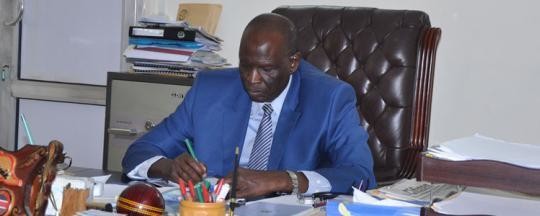The Bank of South Sudan is facing a serious crisis that threatens to further erode confidence in the country’s currency and trigger more economic instability, according to high-level sources in Juba working in the banking sector.
Radio Tamazuj has learned from sources at the central bank and international monetary institutions that the bank is short of dollars and has halted its inter-bank lending service.
The sources further reported that the bank has stopped getting dollar deposits from the Ministry of Finance as it used to do in the past. Whatever little comes from the oil proceeds goes not into the bank, instead ending up with the Ministry of Finance and the Office of the President, which have urgent obligations to settle, sources claimed.
Normally, they said, the central bank gets its dollars by exchanging its pounds with dollars from the Ministry of Finance at an agreed upon rate. But this source is now dried up, making it difficult for the bank to conduct inter-bank services.
Multiple sources confirmed that the central bank’s inter-bank lending was halted some time ago. This implies that the central bank no longer has enough dollars to exchange with to commercial banks and forex bureaus. Dollar deposits at these institutions are therefore at risk of being depleted or already have been depleted.
Trading oil dollars for pounds
Sources in Juba further alleged that the government is exchanging some oil proceeds on the black market rather than exchanging them at the fixed rate set by the central bank.
The government receives most of its revenues in dollars (from oil sales) but makes most of its domestic expenditures in pounds, for example, payments to government employees. Legally, the government must trade these dollars at an official rate set by the central bank, not at the black market rate which is roughly four times the central bank rate.
Recently, the dollar price dropped dramatically in the black market in Juba, last week falling from a high of about 17 pounds to the dollar to a new rate of about 12:1, indicating a short-term increase in the dollar supply in the black market even as the severe dollar shortage persists at formal exchange houses.
Dollar accounts inaccessible
Separately, several media houses have reported that foreign commercial banks with branches in South Sudan have placed limits on the amount of dollars that a customer can withdraw or transfer in a given day. Additionally, a new Kenya Commercial Bank (KCB) ‘circular’ reportedly restricts South Sudanese clients with accounts at commercial banks in South Sudan from withdrawing from counterpart banks in Kenya and Uganda.
For example, a South Sudanese national holding dollars at a KCB branch in Juba may face difficulty withdrawing dollars from a KCB branch in Nairobi, Kenya. This restriction indicates that the commercial banks are unable to immediately settle all of their dollar liabilities, as the South Sudanese pound becomes increasingly an illiquid asset.
Economics writer Garang Atem explained in an article published yesterday, “There is doubt on ability of the Central Bank of South Sudan (CBoSS) as provider of last resort to throw in the reserves, which might have been used up. As CBOSS seems not able to prop up the banks with their reserves, banks have decided to restrict outside transactions to avoid exposure.”
He further raised doubts about the the ability of the South Sudanese central bank and the commercial banks to settle their dollar liabilities, saying “that is why restriction has been placed as mitigation for the exposure.”
‘Beginning of a banking crisis’
Garang warned, “These actions indicate serious loss of confidence in the Central Bank of South Sudan, and points to the beginning of a banking crisis.”
According to South Sudan’s 2011 central banking law, the central bank is the country’s “lender of last resort”, which means that it can offer loans to other banks that are considered risky or near collapse.
As lender of last result, the central bank in any country has the responsibility to help prevent financial panics and bank runs spreading from one bank to the next due to a lack of liquidity. If it is unable to fulfill this function, the economy will be more vulnerable to a banking crisis.
File photo: Bank of South Sudan Governor Kornelio Koriom Mayik
Related coverage:
South Sudan beverage factory reduces output owing to diesel and forex shortages (3 Aug.)
Son of central bank governor involved in currency trading in Juba (7 July)




